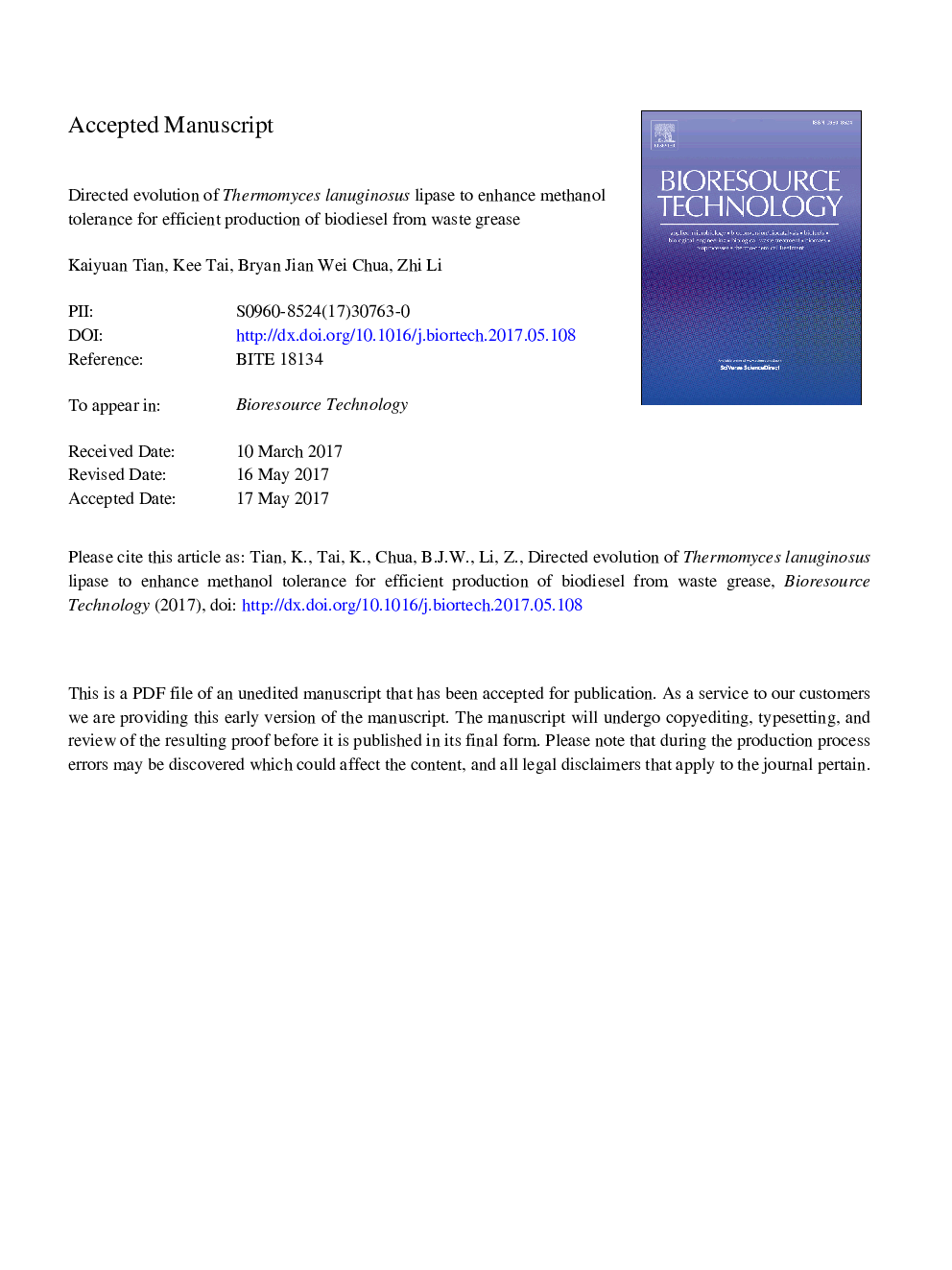| Article ID | Journal | Published Year | Pages | File Type |
|---|---|---|---|---|
| 7069423 | Bioresource Technology | 2017 | 29 Pages |
Abstract
Engineering a methanol tolerant lipase is of great importance in biodiesel production. Here, the first semi-rational method for directed enzyme evolution to enhance methanol tolerance by targeting high B-factor residues for iterative saturation mutagenesis (ISM) is reported. The best double mutant, TLL-S105C/D27R, retained 71% of its original activity after incubation in methanol, showing 30% greater methanol tolerance than TLL. TLL-S105C/D27R also displayed 27% higher activity over TLL. Structure modelling suggested that the increased stability of TLL-S105C/D27R was caused by the formation of a new hydrogen bond which stabilized the protein structure. E. coli (TLL-S105C/D27R)-catalyzed biotransformation of waste grease produced biodiesel in 81% yield in 8Â h, showing improvement over the 67% yield for E. coli (TLL), while retaining 92% productivity after 4 cycles of biotransformation of waste grease. The engineered TLL mutant shows high potential for commercial biodiesel production.
Related Topics
Physical Sciences and Engineering
Chemical Engineering
Process Chemistry and Technology
Authors
Kaiyuan Tian, Kee Tai, Bryan Jian Wei Chua, Zhi Li,
